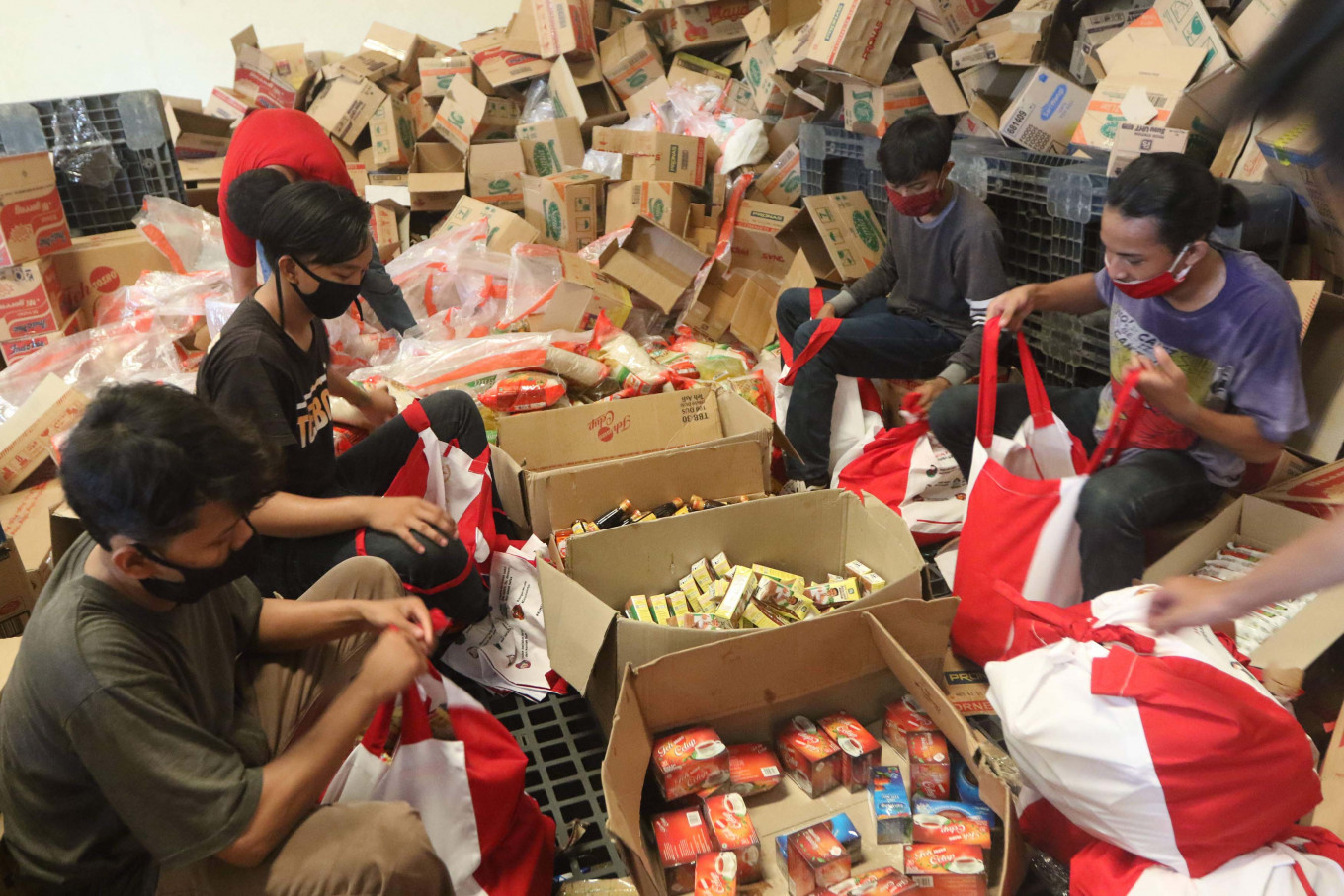Popular Reads
Top Results
Can't find what you're looking for?
View all search resultsPopular Reads
Top Results
Can't find what you're looking for?
View all search resultsExperts, activists call for heightened public scrutiny of COVID-19 policies, funding
The call derives from the apparent impunity a recent regulation provides to officials in charge of implementing COVID-19 policies and disbursing related funds, as well as the "defanged" anticorruption agency.
Change text size
Gift Premium Articles
to Anyone
E
xperts are encouraging increased public scrutiny of the government’s COVID-19 mitigation policies, as the House of Representatives and the Corruption Eradication Commission (KPK) were less critical in their stances.
Didin S. Damanhuri, founder of the Institute for Development of Economics and Finance (Indef), said that large-scale embezzlement could occur if COVID-19 response and spending were not monitored closely.
“The public has to keep watch so that there is no the BLBI scandal volume 2,” Didin said on Tuesday during a public discussion held by the KPK.
He was referring to the Bank Indonesia Liquidity Support (BLBI) that the central bank provided to help failing banks during the 1998 monetary crisis. The recipient banks largely misused the funds, with the KPK estimating in 2019 that Rp 4.58 trillion (US$309.87 million) in state losses remained unrecovered.
Didin stressed that public scrutiny was needed, as the House had passed the regulation in lieu of law (Perppu) on COVID-19 mitigation with little resistance, forfeiting their chance to challenge the regulation.
In addition to the implementing regulations the government has issued under the 2018 Health Quarantine Law, the controversial Perppu gives the government expanded authority to raise the deficit cap and reallocate funds from the state budget.
The Perppu has drawn criticism for a clause that protects officials from legal liabilities, as long as they act “in good faith and in accordance with the law” in the implementation of related fiscal and monetary policies. Experts and activists have raised concerns that the regulation essentially gives carte blanche for officials to commit graft and embezzlement.
Following the Perppu, the government announced it would roll out an economic recovery stimulus package worth Rp 641.17 trillion to support micro, small and medium enterprises (MSMEs) and state-owned enterprises (SOEs).
Read also: Court summonses Jokowi, House to next hearing in COVID-19 response judicial review
Bivitri Susanti, a constitutional law expert at the Jentera School of Law in Jakarta, said during Tuesday's discussion that she deplored the House for focusing on issues other than COVID-19 mitigation, including deliberating the revised 2009 Mining Law revision and insisting on passing contentious omnibus bill on job creation.
“It's like the House and the government are wearing blinders, while the people they represent are thinking about whether they will be able to eat tomorrow,” she said.
Bivitri also urged the public to report any signs of embezzlement in COVID-19 mitigation to the relevant authorities, including the Indonesia Ombudsman and the KPK. She also called on the KPK to be more transparent in releasing public reports.
Meanwhile, Indonesian Corruption Watch activist Kurnia Ramadhana suggested that the KPK might no longer be depended on to eradicate corruption.
The revised KPK Law that came into effect in October 2019 has established a new hierarchical level above the KPK to install a supervisory council armed with veto powers, essentially stripping the commission its independence and its antigraft tools.
Kurnia also noted that KPK chair Comr. Gen. Firli Bahuri, a police general whose appointment late last year prompted public debate, had recorded more controversies than achievements. He added that Firli had made fewer graft arrests while making more frequent visits to government agencies and the House compared to previous KPK leaders, who generally avoided meeting government officials.
Amnesty International Indonesia executive director Usman Hamid said that the public should communicate any dissatisfaction with the COVID-19 regulations and policies through legal channels, such as by filing a judicial review with the Constitutional Court or filing a class-action lawsuit.
Usman also said that the public should find new ways to exert political pressure on the government amid the current social restrictions. For example, he said, a car caravan protest was held in the United States so protesters could maintain physical distance while making their voices heard.










